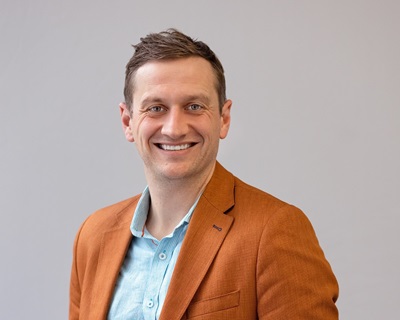2023 | Volume 24 | Issue 5

Dr Andrew Gray
For Dr Andrew Gray, receiving the Morgan Travel Fellowship Grant (2022) from the Royal Australasian College of Surgeons (RACS) has played a pivotal role in shaping his professional aspirations. It enabled him to complete his training in endoscopic ultrasound, a specialised skill in Australia primarily within the realm of gastroenterologists.
Dr Gray's initial training in endoscopic ultrasound began with the eminent Dr Daniel Croagh at the Monash Medical Centre, marking the beginning of an exciting chapter.
"By the end of 2020, I had accumulated a significant amount of experience in this field, as well as in endoscopic retrograde cholangiopancreatography (ERCP). Yet, despite my substantial progress, I had not yet met the formal accreditation requirements for either procedure," Dr Gray says.
This is where the Morgan Travel Fellowship Grant proved particularly helpful for Dr Gray. "I had to take three months out of my practice, and the Fellowship helped cover airfares and living allowance, for which I am very thankful. Economically, the Fellowship grant was quite significant as I had to fund myself."
During his time in France, Dr Gray had the opportunity to handle a substantial number of cases, enabling him to fulfill the accreditation requirements for both endoscopic ultrasound and ERCP.
"The practical use of these skills quickly became apparent. Since my return, these skills have become an integral part of my practice, and this has been immensely beneficial. I can now address various aspects of patient care, providing a comprehensive approach without the need to involve multiple doctors in their treatment," he says.
Born and raised in Orange, New South Wales, Dr Gray’s surgical journey was influenced by early family guidance and a pivotal work experience as a 17-year-old—shadowing his godfather, an orthopaedic surgeon. This is where he discovered his true calling.
He pursued a six-year undergraduate medicine course at the University of New South Wales, gaining diverse experience in urban and regional settings across Australia during his training. This exposure helped him narrow down his career choices to specialise in general surgery and hepatopancreatobiliary (HPB) surgery.
He recalls his time in Port Macquarie, both as a student and a registrar, when he encountered a liver surgeon practicing in a regional setting. This sparked his interest in liver and pancreas surgery.
Throughout his surgical journey, Dr Gray always entertained the idea of returning to Orange or another regional community. However, his perspective evolved as he contemplated a role in HPB surgery within a regional context, realising the significant complementarity that advanced endoscopic procedures could offer to this field.
Despite these considerations, his journey ultimately led him to continue practicing in the city. He is now entering his fourth year in Melbourne.
Dr Gray encourages surgeons to apply for the RACS Fellowships. “RACS has streamlined the application process effectively. The available grant money is suitable for short-term training, typically up to three months, rather than extended immersive experiences.
“The application process is straightforward once you decide to apply. My decision to pursue endoscopic ultrasound, while unusual for a surgeon, received strong support from RACS due to its potential benefits for my growth and the development of surgeons around me, aligning with their long-term educational goals.”
As a consultant, Dr Gray holds a public appointment with Monash Health, where he primarily practices general surgery while also playing a crucial role in educating junior doctors. He divides his time between multiple private hospitals in southeast Melbourne, ensuring that his expertise benefits a wide range of patients.
So how does he balance work and personal life?
“To be honest, it's tricky. There are a lot of competing interests in my life at different times. I try to do my best in terms of balancing these priorities,” Dr Gray says.